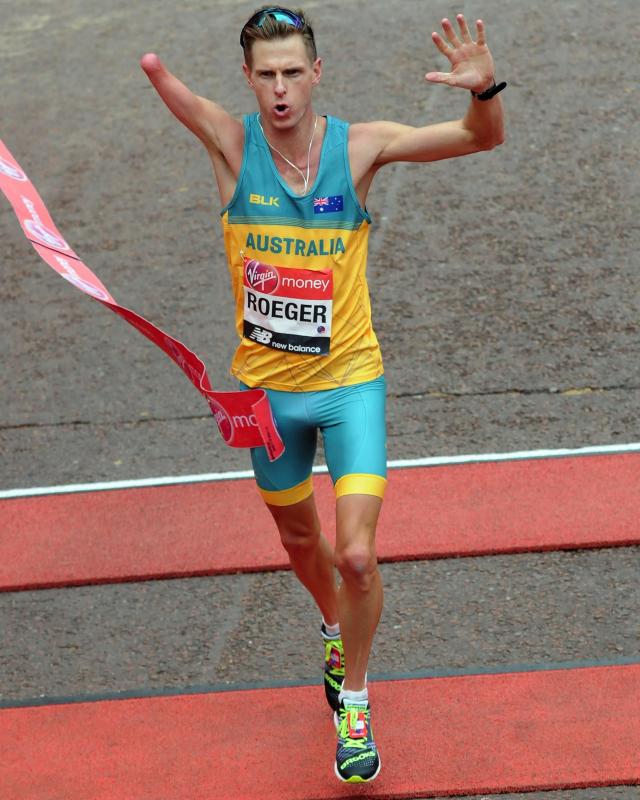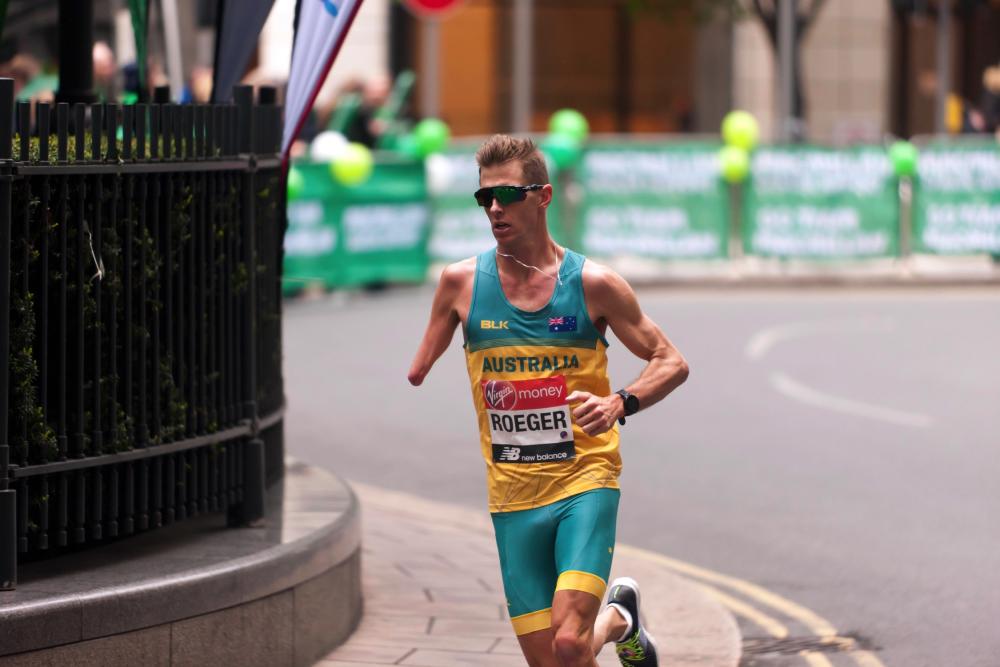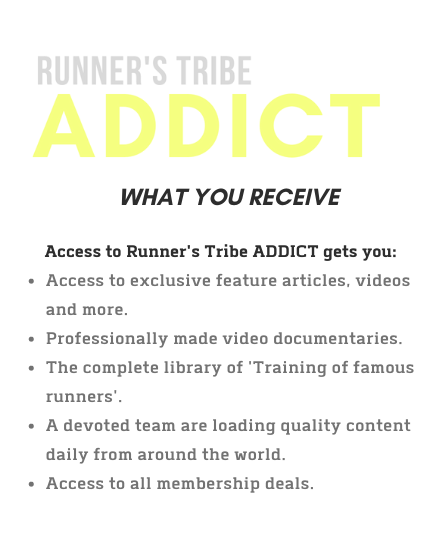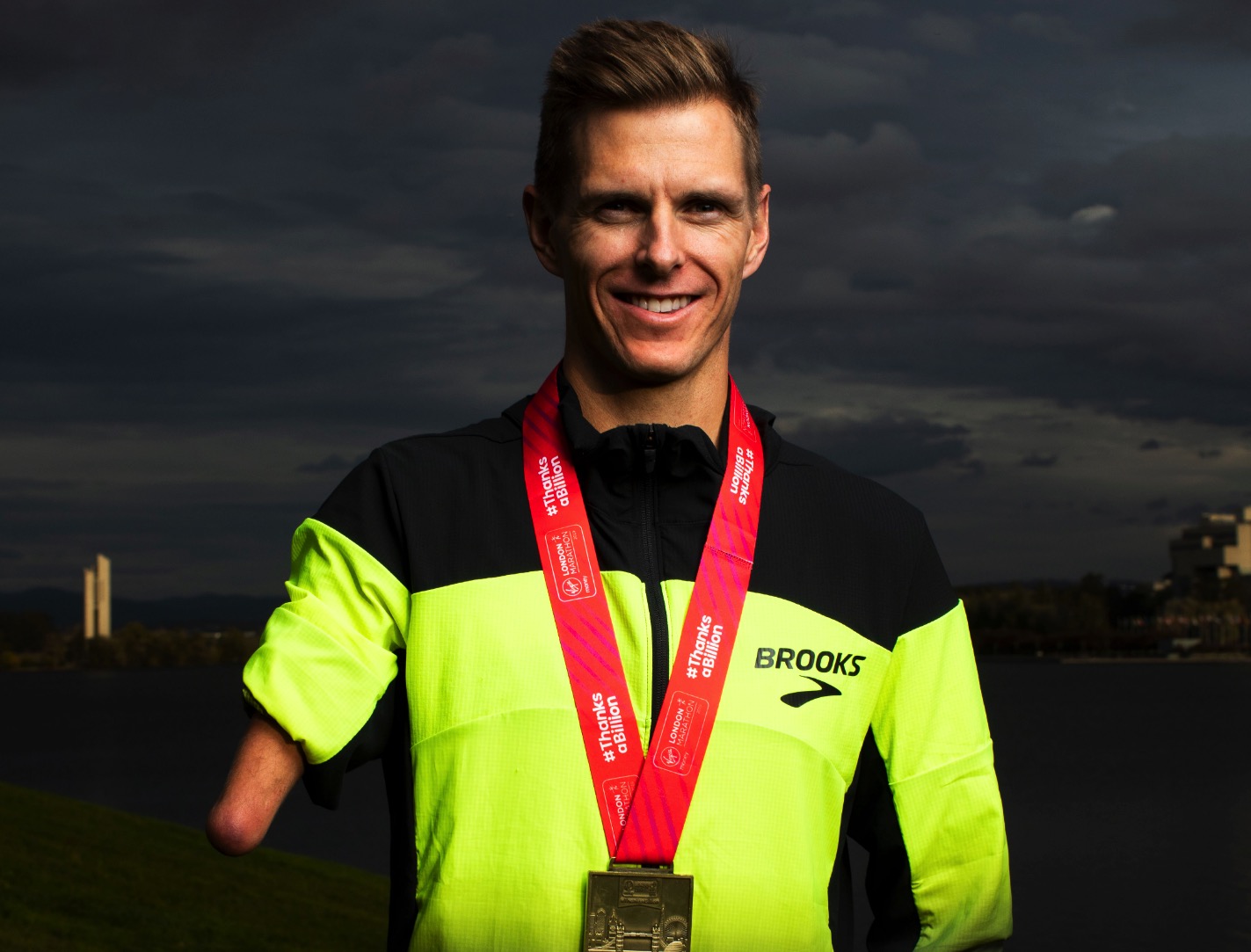
As Michael Roeger’s body ground to a halt along the Embankment in London earlier this year, the crowd hushed, their breaths held in unison as they bore witness to the dramatic cruelty of the marathon. Mercilessly, it seemed, the historic distance was only moments away from claiming yet another victim. “I was in strife,” Roeger recalled. “It felt like there was a sniper in the crowd shooting at my body. It all got too much. I had to stop.” At this point, only two kilometres from the famous finish down The Mall, Roeger was five minutes clear of his rivals in the arm-amputee (T46) world championship marathon. Glory, literally, awaited around the corner, but his body had surrendered, the pain intolerable, only his mind willing him forward. “Everything I had sacrificed and worked for my entire life was to get to that finish line. I was willing to crawl to reach that line.”
At the age of thirty-one, Roeger had already cemented himself as the greatest Australian Paralympic distance runner in history. In 2018, the three-time Paralympian broke four world records – 1500m, 5000m, 10,000m, and the marathon – a feat which would usually ensure immortality in the running world. However, his career, plagued by injury and misfortune, had refused him the most precious title: world champion. “When you’re the world record holder, the next thing is to win a world title. But that didn’t come easy to me,” he said. “It can be a heart-wrenching sport. All I wanted to do was win a bloody gold medal.”

As he hobbled along the road that ran parallel to the River Thames, Roeger thought back to those times where he had fallen agonisingly short of his dream. At the Paralympic Games in 2012, a gastrointestinal bleed prevented him from finishing his race, instead, rendering him bedridden in hospital. In 2015, running on a heel-bone stress fracture, he could only manage bronze at the world championships. In 2017, struggling to run on a destructive peroneal nerve injury, he urinated blood, one of many symptoms that forced him to withdraw from those championships altogether. “He has put a lot of pressure on himself in the past. He wants that gold medal, he wants that perfect performance, and he wants to please people,” his coach Philo Saunders said. “I think sometimes he puts too much pressure on himself, and it’s like he’s almost run himself dry by the time the race comes.”
Despite all of these failures, there were none more devastating than that which occurred on the biggest stage of all: the 1500m at the 2016 Paralympic Games in Rio de Janeiro. “I thought it was my time. I was fit, I was fast, and I was ready to go,” Roeger said. But, alas, it was as if he suffered from an inextricable curse. Bronze was nothing to be ashamed of, but he had never dreamt of playing second fiddle. “You give up so many things. You train so hard for this one chance every four years, and then you cross the line, and you’re shattered. I see photos of my face after I crossed the line and they’re hard to look at. It still is a tough pill to swallow.”
RUNNER’S TRIBE PAYS OUR WRITERS & FILM MAKERS TO CREATE EXCITING & ENTERTAINING CONTENT. HELP SUPPORT THESE PROFESSIONALS AND JOIN RT PREMIUM NOW.
TO VIEW THIS CONTENT PLEASE SIGN-UP TO RUNNER'S TRIBE'S MEMBERS ONLY PREMIUM CONTENT. WE HAVE SOURCED THE WORLD'S TOP WRITERS AND FILM MAKERS TO DELIVER ANY ATHLETE, COACH, PARENT OR FAN THE ULTIMATE PORTAL FOR ATHLETICS EDUCATION, ENJOYMENT AND INSPIRATION.






